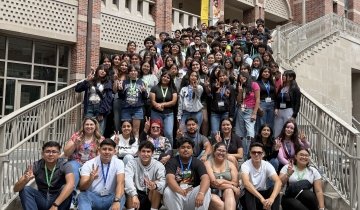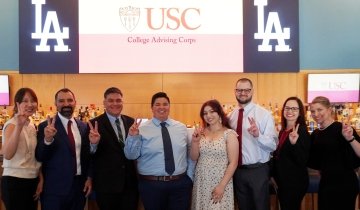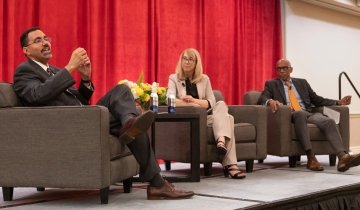In a recently published article, USC Rossier Assistant Professor Shafiqa Ahmadi argues that the religion of Islam can be reconciled with homosexuality and can provide a stand against oppression and discrimination of Muslim LGBT individuals.
The article, which appears in the St. John’s University’s Journal of Civil Rights and Economic Development, analyzes the religious, historical, and legal contexts of Islam and homosexuality.
Ahmadi urges an examination of the Muslim LGBT community through the lens of intersectionality within Critical Race Theory, which acknowledges that individuals who are minorities in both religious and sexual orientation identities are burdened by multiple forms of disempowerment.
Her article explores Qur’anic passages which Ahmadi asserts are used to justify objections to homosexuality, concluding that many are actually ambiguous, open to interpretation, and likely refer to infidelity, assault and deviant behavior, rather than homosexuality. Ahmadi also points to sacred verses in the Qur’an that espouse acceptance of diversity in all aspects.
Ahmadi looks at homosexuality from the perspective of Shari’a, the guiding principles and customs, which Muslims generally follow. Her article concludes that these principles and customs can be open to scholarly debate and evolve with the times. She also underscores the fact that the most conservative mosque leaders are often those the media turns to be the voice of the faith, though their beliefs do not often reflect those of the Muslim community in general.
While homosexual conduct is criminalized in more than eighty countries around the world, the majority of these countries inherited these laws when they were British colonies. According to Ahmadi’s article, the laws against homosexuality that the British used to enforce Judea-Christian values and exert control over a colonized people became entrenched within those societies long after the colonizers had left.
Ahmadi’s article urges the global Muslim community to address the status of homosexuality in Islam, and insists that open dialogue about the real root causes of intolerance may reveal potential for what she calls “the religion of peace and anti-oppression” to reexamine its stance on homosexuality.




